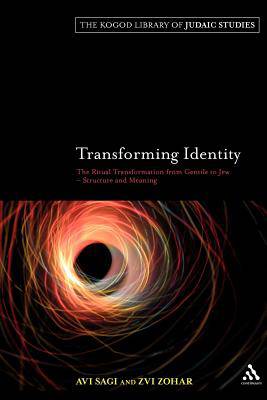
- Afhalen na 1 uur in een winkel met voorraad
- Gratis thuislevering in België vanaf € 30
- Ruim aanbod met 7 miljoen producten
- Afhalen na 1 uur in een winkel met voorraad
- Gratis thuislevering in België vanaf € 30
- Ruim aanbod met 7 miljoen producten
Zoeken
Omschrijving
Of all Judaic rituals, that of giyyur is arguably the most radical: it turns a Gentile into a Jew - once and for all and irrevocably. The very possibility of such a transformation is anomalous, according to Jewish tradition, which regards Jewishness as an ascriptive status entered through birth to a Jewish mother.
What is the internal logic of the ritual of giyyur, that seems to enable a Gentile to acquire an 'ascribed' identity? It is to this question, and others deriving from it, that the authors address themselves. Interpretation of a ritual such as giyyur is linked to broad issues of anthropology, religion and culture: the relation of 'nature' and 'culture' in the construction of group boundaries; the tension between ethnicity and religion; the interrelation of individual identity and membership in a collective. Fully aware of these issues, this groundbreaking study focuses upon a close reading of primary halakhic texts from Talmudic times down to the present as key to the explication of meaning within the Judaic tradition. In our times, the meaning of Jewish identity is a core issue, directly affecting the public debate regarding the relative weight of religion, nationality and kinship in determining basic aspects of Jewish life throughout the world. This book constitutes a seminal contribution to this ongoing discussion: it enables access to a wealth of halakhic sources previously accessible only to rabbinic scholars, fleshes out their meanings and implications within the cultural history of halakha, and in doing so situates halakha at the nexus of contemporary cultural discourse.Specificaties
Betrokkenen
- Auteur(s):
- Uitgeverij:
Inhoud
- Aantal bladzijden:
- 320
- Taal:
- Engels
- Reeks:
- Reeksnummer:
- nr. 3
Eigenschappen
- Productcode (EAN):
- 9780826496720
- Verschijningsdatum:
- 29/01/2008
- Uitvoering:
- Paperback
- Formaat:
- Trade paperback (VS)
- Afmetingen:
- 161 mm x 228 mm
- Gewicht:
- 498 g

Alleen bij Standaard Boekhandel
+ 339 punten op je klantenkaart van Standaard Boekhandel
Beoordelingen
We publiceren alleen reviews die voldoen aan de voorwaarden voor reviews. Bekijk onze voorwaarden voor reviews.








